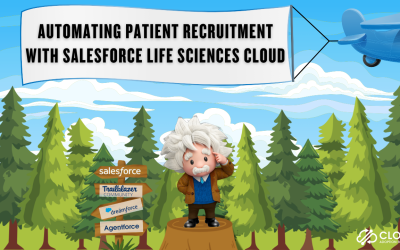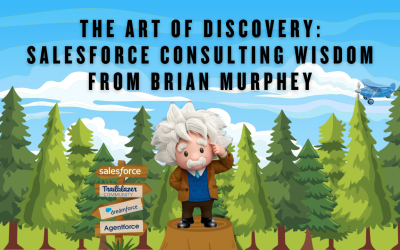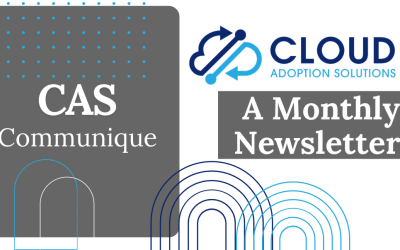Data breaches have become an all-too-common occurrence, with hackers and cybercriminals constantly on the prowl for vulnerabilities to exploit. The consequences of a data breach can be catastrophic for businesses, from financial losses to reputational damage and legal liabilities.
With so much at stake, companies must take proactive measures to mitigate the risk of data breaches. Two key strategies for doing so are endpoint security and data backups. In this article, we’ll explore how businesses can use these two approaches in tandem to create a more robust defense against data breaches, with a focus on the role of endpoint security and Salesforce backups.
By the end of this article, you’ll have a better understanding of how to protect your business’s sensitive data and ensure that you’re prepared to respond to any potential threats.
Understanding Endpoint Security
Endpoint security is the practice of securing the endpoints, or entry points, of a network, such as laptops, desktops, servers, and mobile devices. The goal of endpoint security is to prevent unauthorized access to a network and protect against malware, viruses, and other cyber threats. In today’s business environment, where employees frequently work from home or on the go, endpoint security is more important than ever.
Key Components of an Endpoint Security Strategy
There are several key components of a comprehensive endpoint security strategy.
Exploit and Threat Protection
This component focuses on preventing cyberattacks by exploiting vulnerabilities in endpoints. It involves using anti-malware software, intrusion detection and prevention systems, and other security tools to identify and block known and unknown threats.
Network Protection
This component is concerned with securing the network connections that endpoints use to communicate with other devices and servers. It includes firewalls, VPNs, and other network security technologies that prevent unauthorized access and protect against network-based attacks.
Application Protection
This component focuses on securing the applications that endpoints use, including web browsers, email clients, and other software. It involves using techniques like application whitelisting and sandboxing to prevent malicious code from running on endpoints.
Data Protection
Endpoints’ storage and transmission of sensitive data is what this component is concerned with safeguarding. It includes measures like encryption, data loss prevention, and access controls to prevent unauthorized access and data theft.
Intelligence and Analytics
This component involves using machine learning and other analytical tools to detect and respond to security threats in real time. It can help identify patterns and anomalies that might indicate a cyberattack and provide insights into how to prevent future attacks.
Centralized Management
This component involves managing and monitoring endpoint security from a central location. It includes tools like security information and event management (SIEM) systems and endpoint management platforms that enable administrators to deploy and configure security policies, monitor security events, and respond to security incidents.
Salesforce Backups: Why They Matter
Salesforce is a cloud-based CRM platform that stores critical business data such as customer information, sales records, and financial data. The loss of this data due to a data breach or system failure can be catastrophic for businesses. Salesforce backups involve copying and storing Salesforce data in a separate location to ensure that it is protected from data loss.
There are different types of Salesforce backup solutions, including manual backups, scheduled backups, and incremental backups.
- Manual backups require the user to manually copy data from Salesforce to a separate location.
- Scheduled backups can be set up to automatically back up Salesforce data at specific intervals.
- Incremental backups only backup data that has changed since the last backup, reducing the time and resources required for backups.
Implementing Salesforce backup measures should include setting a backup frequency, choosing a secure storage location, and implementing data retention policies. It is also essential to configure Salesforce backup settings for maximum protection. This includes setting up automatic backups and monitoring backups for errors. By implementing these measures, you can enhance your Salesforce skills and safeguard critical data.
Combining Endpoint Security and Salesforce Backups
While endpoint security and Salesforce backups are effective strategies on their own, they can be even more powerful when used in tandem. By combining endpoint security and Salesforce backups, businesses can create a more robust defense against data breaches and ensure that their data is protected from both internal and external threats.
One way to integrate endpoint security and Salesforce backups is to use endpoint security software that automatically backs up data to a secure cloud storage solution. This approach ensures that data is backed up regularly and can be easily restored in the event of data loss or corruption. It also provides an additional layer of protection against cyber threats, as endpoint security software can detect and prevent malware or viruses from infiltrating a network in the first place.
Another way to integrate endpoint security and Salesforce backups is to use a backup solution that provides granular control over data backups. With granular backups, businesses can select which data is backed up and when allowing them to prioritize critical data and reduce backup times. This approach also ensures that businesses can easily recover specific data sets without having to restore an entire backup, which can save time and reduce the risk of data loss.
In addition to these technical solutions, businesses should also invest in employee training and education. This will help employees understand the significance of data security and enable them to identify potential cyber threats. By providing regular security awareness training, enforcing strong password policies, and implementing two-factor authentication (2FA), businesses can cultivate a culture of security in the workplace and prevent unauthorized access to company data.
Final Thoughts
Data breaches are a serious threat to businesses of all sizes, and endpoint security and Salesforce backups are two key strategies for mitigating this risk. By combining these approaches, organizations can create a more comprehensive and effective defense against cyber threats, while also ensuring their data is backed up and protected in the event of data loss or corruption.
Chatty Garrate is a freelance writer from Manila. She finds joy in inspiring and educating others through writing. That’s why aside from her job as a language evaluator for local and international students, she spends her leisure time writing about various topics such as lifestyle, technology, and business.




